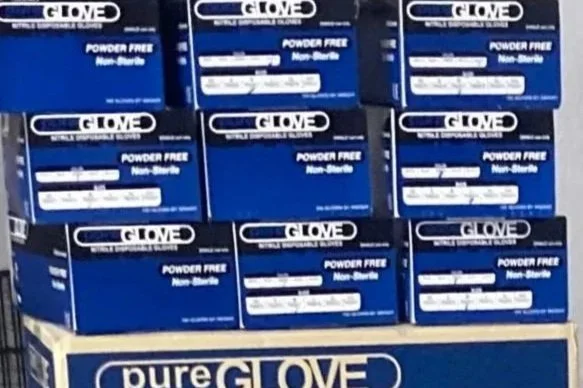A Local Lifeline: Turning Medical Surplus into Same-Day Care
MedCycle Network on Humanitarian AI Today
When Eric Talbert sat down with the team from Humanitarian AI Today, it didn’t feel like a typical podcast interview. It felt like a shared mission.
“Right away, I could tell this wasn’t just about AI or tech,” Eric said. “These were people asking: How do we use innovation to serve humanity better? That’s the kind of question that brings MedCycle Network to the table.”
Humanitarian AI Today is a global podcast and publication that explores how responsible, ethical artificial intelligence can support disaster response, public health, and social impact. They’ve interviewed thought leaders from WHO, UNICEF, Stanford Medicine, and now — MedCycle Network. The full conversation is available online: Eric's Interview
The spotlight on MedCycle Network makes sense. MedCycle Network isn’t just moving boxes. It’s redesigning how we value and move medical surplus — using trust, tech, and community to turn unused items into immediate care.
Eric shared what it means to run an organization that picks up surgical gloves in San Francisco and delivers them to a neighborhood clinic across the Bay — sometimes on the same day.
“Once you see how much usable material gets discarded, you can’t unsee it,” he said during the interview. “We’re talking about brand new items. Syringes, gowns, PPE — the same things that other clinics are running out of.”
The team at Humanitarian AI Today was curious about how MedCycle Network uses technology — and how it avoids common pitfalls.
Eric was candid: “We’re not trying to automate compassion. We’re building tools that speed up trust. If a clinic needs ten boxes of masks, we don’t want a three-week email chain. We want a simple system — you ask, we deliver.”
Eric talked about a future where a photo of a surplus item could be instantly categorized, added to a shared system, and matched with a local clinic’s request. All in seconds. No spreadsheets, no delays.
But the point isn’t the tech. It’s who it’s built for — and with.
“Ethical AI starts with real community,” Eric said. “The clinics we serve, the hospitals we partner with — they help shape the system. It’s not tech being done to them. It’s being built with them.”
That’s a key difference. And one reason the Humanitarian AI team called MedCycle Network’s model “a global good hiding in plain sight.”
Throughout the conversation, one idea kept surfacing: this isn’t an invention. It’s a re-imagination.
“Medical surplus doesn’t have to be waste,” Eric said. “It can be a local, life-saving resource. We’re just building the system to make that the norm.”
Thanks to early support from funders like the Hellman Foundation — and hospitals like UCSF Health, El Camino Health, MarinHealth, and CommonSpirit — MedCycle Network is turning that system into a reality.
And as Eric puts it: “The faster we close the loop between surplus and need, the faster we close the gap between patients and care.”
Want to be part of the solution?
MedCycle Network is currently expanding to Southern California and looking for new partners — from hospitals to funders to community clinics. If you’re interested in piloting, donating, or collaborating, reach out to Eric at eric@medcyclenetwork.org
Let’s keep this surplus in service. Together.



